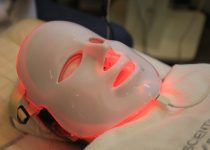My Journey To Clear Skin: A Guide To Conquering Acne
Acne is a common skin condition that can affect people of all ages. It can be caused by a variety of factors, including hormones, genetics, and diet. While there is no one-size-fits-all cure for acne, there are a number of effective treatments available. In this blog post, I will share my personal experience with acne and provide a guide to some of the most common treatments.
My acne journey began in my early teens. I started to develop small pimples on my forehead and cheeks. At first, I tried to ignore them, but they soon became more noticeable. I tried over-the-counter acne washes and creams, but nothing seemed to work. My acne continued to get worse, and I began to feel self-conscious about it.
I finally decided to see a dermatologist. He prescribed me a topical retinoid, which is a medication that helps to unclog pores and reduce inflammation. I also started using a benzoyl peroxide wash, which helps to kill bacteria. After a few months of using these treatments, my acne started to improve. It took some time, but my skin eventually cleared up completely.
If you are struggling with acne, there are a number of things you can do to treat it. Over-the-counter acne washes and creams can be effective for mild acne. For more severe acne, you may need to see a dermatologist for prescription medications. There are also a number of lifestyle changes you can make to help improve your skin, such as eating a healthy diet, getting enough sleep, and managing stress.
Here are some of the most common treatments for acne:
* **Topical retinoids:** Retinoids are a type of medication that helps to unclog pores and reduce inflammation. They are available in both over-the-counter and prescription strengths.
* **Benzoyl peroxide:** Benzoyl peroxide is a type of antibacterial medication that helps to kill bacteria that can cause acne. It is available in both over-the-counter and prescription strengths.
* **Salicylic acid:** Salicylic acid is a type of exfoliating agent that helps to remove dead skin cells and unclog pores. It is available in both over-the-counter and prescription strengths.
* **Antibiotics:** Antibiotics can be used to treat acne that is caused by bacteria. They are typically prescribed for short-term use.
* **Hormonal therapy:** Hormonal therapy can be used to treat acne that is caused by hormonal imbalances. It is typically prescribed for women.
* **Isotretinoin:** Isotretinoin is a powerful medication that is used to treat severe acne. It is typically prescribed for people who have not responded to other treatments.
If you are considering using any of these treatments, it is important to talk to your doctor first. They can help you determine which treatment is right for you and monitor your progress.
In addition to medical treatments, there are a number of lifestyle changes you can make to help improve your skin. Here are some tips:
* **Eat a healthy diet:** Eating a healthy diet can help to improve your overall health and well-being, which can have a positive impact on your skin. Be sure to eat plenty of fruits, vegetables, and whole grains.
* **Get enough sleep:** Getting enough sleep is important for overall health, including skin health. When you sleep, your body produces hormones that help to repair and regenerate your skin.
* **Manage stress:** Stress can trigger acne breakouts. Find healthy ways to manage stress, such as exercise, yoga, or meditation.
* **Avoid touching your face:** Touching your face can transfer bacteria to your skin, which can lead to breakouts. Avoid touching your face, especially if your hands are dirty.
* **Change your pillowcase regularly:** Your pillowcase can collect bacteria and oil, which can transfer to your skin and cause breakouts. Be sure to change your pillowcase regularly, especially if you are prone to acne.
Acne can be a frustrating and embarrassing condition, but it is important to remember that there are effective treatments available. Talk to your doctor about the best treatment options for you and make sure to follow their instructions carefully. With the right treatment and lifestyle changes, you can achieve clear, healthy skin.


